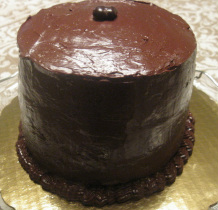
But what about the rest of us? The debate about gluten rages on while "gluten-free" products are now everywhere. What is gluten? Do we need it? What's wrong with trying a gluten-free diet to see how we feel? and, Is it really healthier to "go gluten-free"?
For starters, most of us (including children) benefit from gluten in our diets and going gluten-free means eliminating many common and nutritious foods. Gluten is a protein found in whole grains like wheat, barley, rye, and even oats; it is present in many whole grain foods (including baked goods) that use wheat and other common grains--that includes bulghur, farro, kamut, spelt, and triticale. All are rich in vitamins and minerals, such as B vitamins and iron, and fiber and nutrition experts recommend eating whole grain foods, as part of a healthy diet. Whole grain products may help lower your risk of heart disease, type-2 diabetes, and some forms of cancer. Adding naturally gluten-free grains like quinoa, millet, or amaranth to our diets or eating gluten-free meals sometimes can wake up our taste buds and add some variety and balance to what we eat.
But for those of us without autoimmune diseases and allergies, is going "gluten free" really a healthier option? The answer depends on how well you read and understand the ingredients in foods touted as "gluten-free". Some people insist they just feel better completely eliminating gluten from their diets. If you are among them, here's some food for thought (OK, pun intended): researchers have found that most people who cut gluten from their diets may also be eliminating foods that contain high-fructose corn syrup, artificial ingredients, chemical dyes and additives (a fact that researchers found to be more likely to contribute to feeling better than simply eliminating gluten).
And what about those gluten-free baked goods that are so popular now? Are they better for you than traditional baked goods? Read your labels! Commercial gluten-free flour is actually a specialized blend of starches (usually a combination of potato, tapioca, or rice) which tend to be highly processed and often contain additives and stabilizers in order to imitate the way conventional flour performs and tastes in baked goods. Any of you who have tried gluten-free mixes or flours know that some are gritty or don't perform or taste the same--in fact, many gluten-free mixes and recipes feature sugar as the first ingredient!
At Cakes, we use organic, certified non-GMO flour in our cakes, along with other organic ingredients. If you are one of our customers who choose gluten-free desserts as part of a lifestyle choice, we offer several delectable naturally gluten-free (and additive-free) desserts made from traditional, old-world recipes (like meringues, macaroons or flourless tortes). We also offer a limited selection of desserts using commercial gluten-free "flour" blends that meet our high standards--but many of our specialty cakes can be duplicated with gluten-free flour, so please ask us for recommendations when you place your special order.



 RSS Feed
RSS Feed